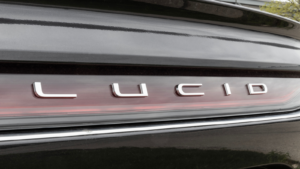
Electric vehicles are in the news again but this time for a positive reason. In news that broke earlier in the week, German automotive giant Volkswagen (OTCMKTS:VWAGY) will invest up to $5 billion into Rivian Automotive (NASDAQ:RIVN). The influx should help Rivian produce its modestly priced (relatively speaking) vehicles. It also opens the door for other EV stocks to buy.
I’m not entirely convinced that Rivian would be the best beneficiary of the Volkswagen deal. Sure, it sounds great on paper. However, the theme here is that EV manufacturers will be pivoting toward addressing the middle-income crowd. Anytime you shift focus toward different elements of the income spectrum, the move comes with pros and cons.
Sure, more middle-income buyers exist than high-income buyers: that’s just basic economic math. At the same time, such buyers may not own their own homes and thus lack access to private charging. That means public charging will become a central – if not the central – issue.
That just might change the game for these EV stocks below.
General Motors (GM)

While General Motors (NYSE:GM) has nothing to do with the Volkswagen-Rivian deal, it could actually be one of the beneficiaries. Again, the focus among EV stocks appears to have shifted from addressing well-off customers to middle-income buyers. That sounds like a viable plan on paper for Rivian. But you must consider the distinct requirements of this consumer demographic.
More than likely, middle-income buyers will use their EVs as a primary transportation vehicle, not a weekend car. You know what that means – range will be an issue. So will reliability and along with that a trusted brand. Further, consumers in this income bracket will likely seek an expansive dealership network for when stuff goes wrong.
These factors benefit GM. Let’s be real – the company doesn’t enjoy the greatest reputation. But compared to an upstart EV maker? I don’t think it’s a stretch to assume that buyers will prefer a legacy automaker that’s been there, done that.
Plus, GM is profitable, expected to generate earnings per share of $9.71 this year. It may also see a modest bump in sales to $176.29 billion. It’s the prudent play among EV stocks.
EVgo (EVGO)

Let’s get into the real meat. If you’re looking for EV stocks that will benefit from the Volkswagen-Rivian deal, consider EVgo (NASDAQ:EVGO). As an infrastructure specialist, EVGO represents more of a direct play in the sector. Further, the company specializes in building fast-charging networks. Again, that should be extremely relevant for middle-income drivers looking to make the transition to electric mobility.
Recently, I made a similar argument with embattled rival enterprise ChargePoint (NYSE:CHPT). Of course, both ChargePoint and EVgo suffer from financial viability concerns. Neither enterprise is profitable. However, the paradigm may be shifting. Rivian is getting serious about addressing the modest-income crowd. Other competitors may follow suit. In my opinion, that’s only going to make charging companies even more attractive.
There’s a direct correlation between income and homeownership: the higher the income, the greater probability that said person owns a home. When you move lower on the income scale, you’re likely to encounter consumers that may not have access to home-charging solutions.
Cynically, that’s a huge positive for EVgo. It doesn’t guarantee upside, to be clear. However, the narrative just got a heckuva lot more exciting.
Lucid (LCID)

Interestingly, Lucid (NASDAQ:LCID) – a specialist in the premium vehicle segment – represented one of the beneficiaries among EV stocks. LCID stock gained almost 3% of equity value on Thursday. This performance followed a big jump during Wednesday’s session. But why? Some point to the possibility that another major backer of Lucid can give the company a similar cash influx.
To be fair, Lucid presents a very tricky argument among potential EV stocks to consider. Frankly, I hope that the company does receive an influx; I just believe that it would be better served if the firm continues targeting the wealthy. Rivian may find out soon enough that going down the income spectrum sounds good in theory. However, in practice, it may present additional problems.
People who have been driving combustion cars all their lives aren’t ready for a dramatic shift to EVs at scale. Imagine: you’re used to pulling up to any gas station and filling up in – I don’t know – five minutes or less. Now, you’re looking at 20 minutes or more.
No, the inconveniences still mean that EVs are better suited for wealthy individuals. While Rivian is distracting itself with the middle-income crowd, Lucid can gain market share where it matters.
On the date of publication, Josh Enomoto did not have (either directly or indirectly) any positions in the securities mentioned in this article. The opinions expressed in this article are those of the writer, subject to the InvestorPlace.com Publishing Guidelines.




